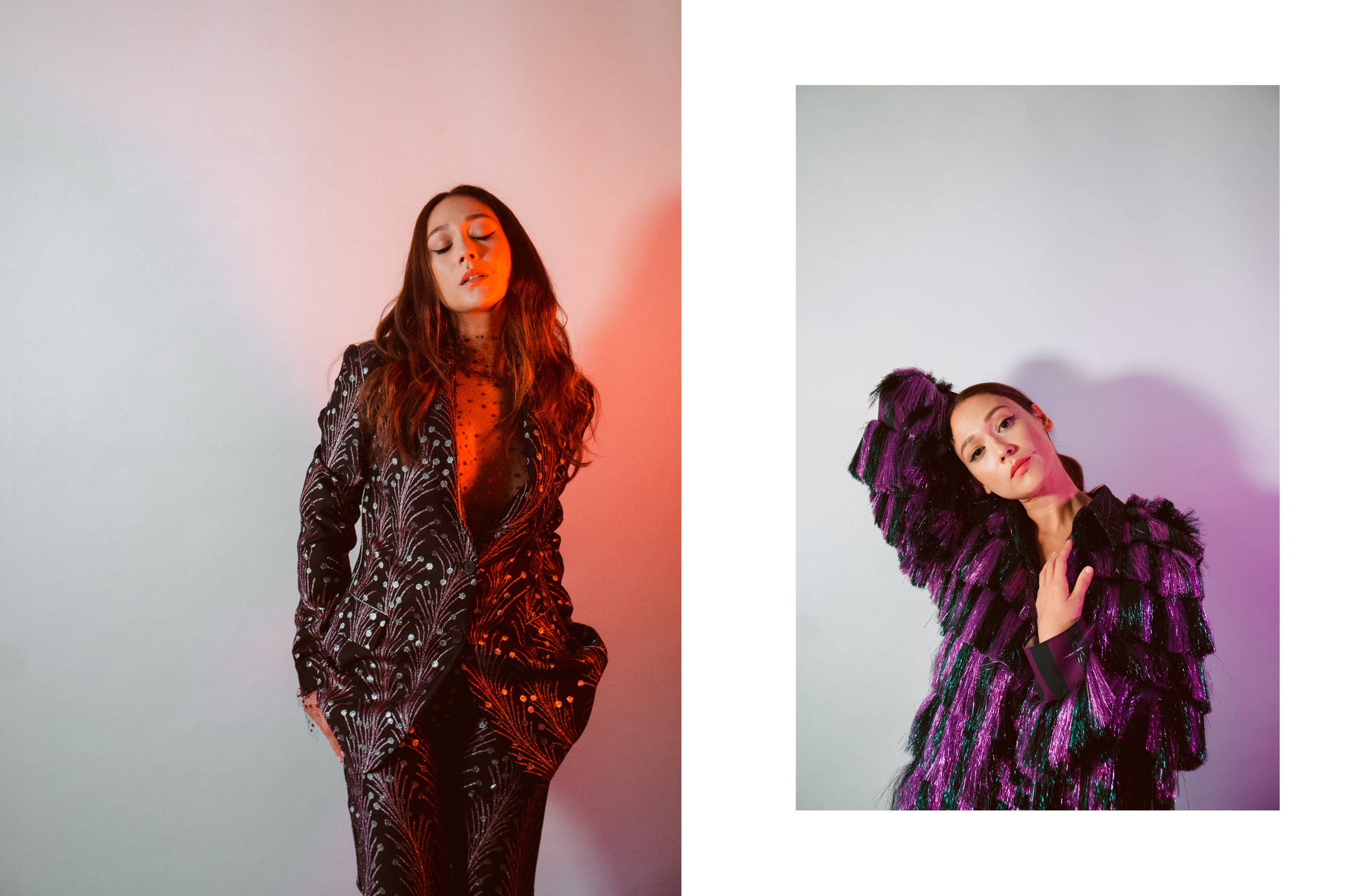Theater, cinema and characters that have their own music themes, a “motif” that represents their personality and makes us think of them: Dajana Roncione, an all-round artist born from theater, which she loves and brings with her on set, opened up in our interview.
In front of the camera — we saw Dajana in “I am Mia“, in which she plays Loredana Bertè, and “The Mafia Kills Only in Summer – Chapter 2” — or under the spotlight on a theater stage, Dajana has learned to create a personal connection with the roles she plays thanks to music, body language and by asking personal questions about herself, as well as the character. She acts as if she were a painter who wants to create a credible portrait of the character she’s playing, but with an artistic touch to it.
Discover how she worked on “Anima“, the dialogue-free short film directed by Paul Thomas Anderson that accompanies the homonymous solo album by Thom Yorke, what are Dajana’s future projects and which character she feels ready to play.
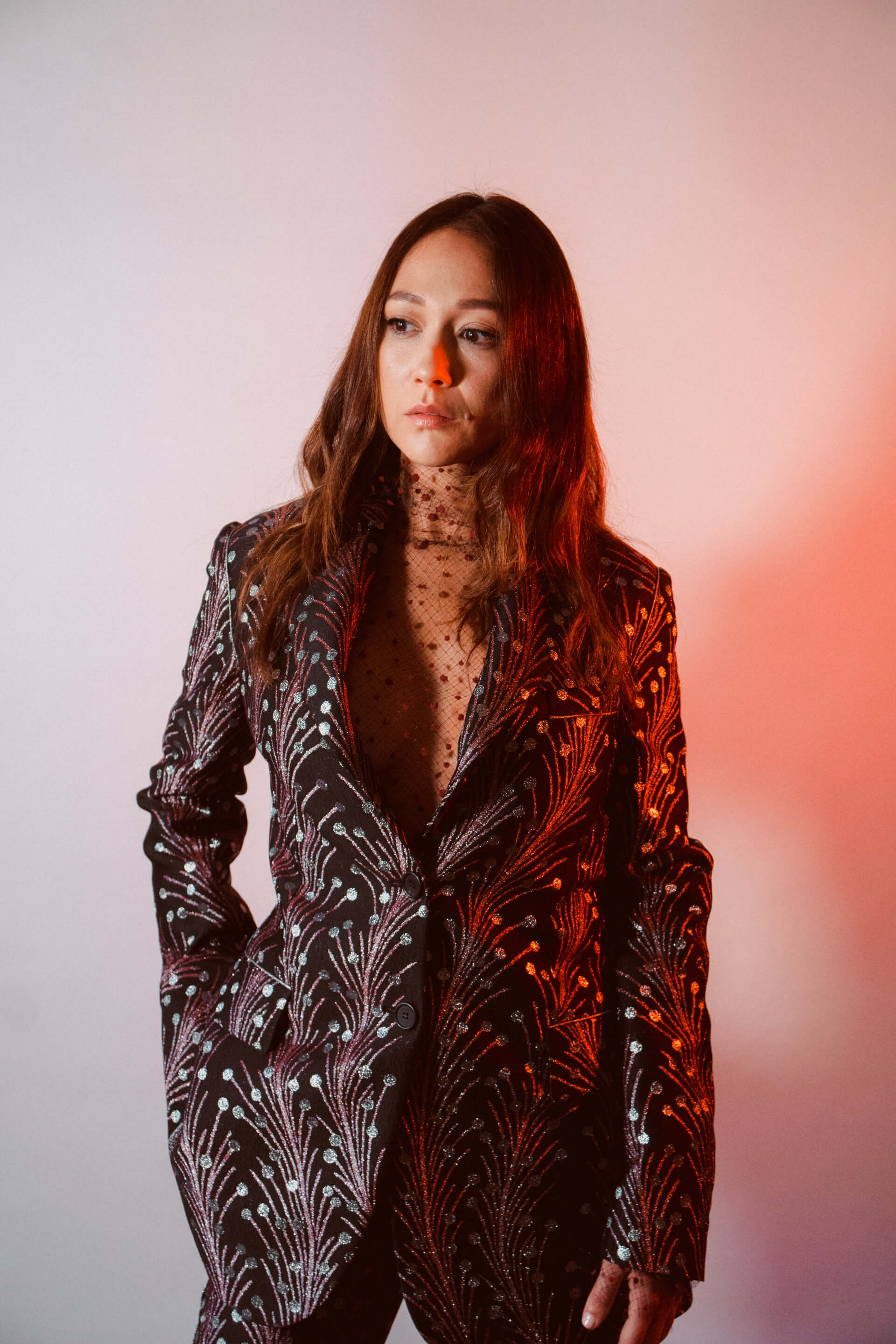
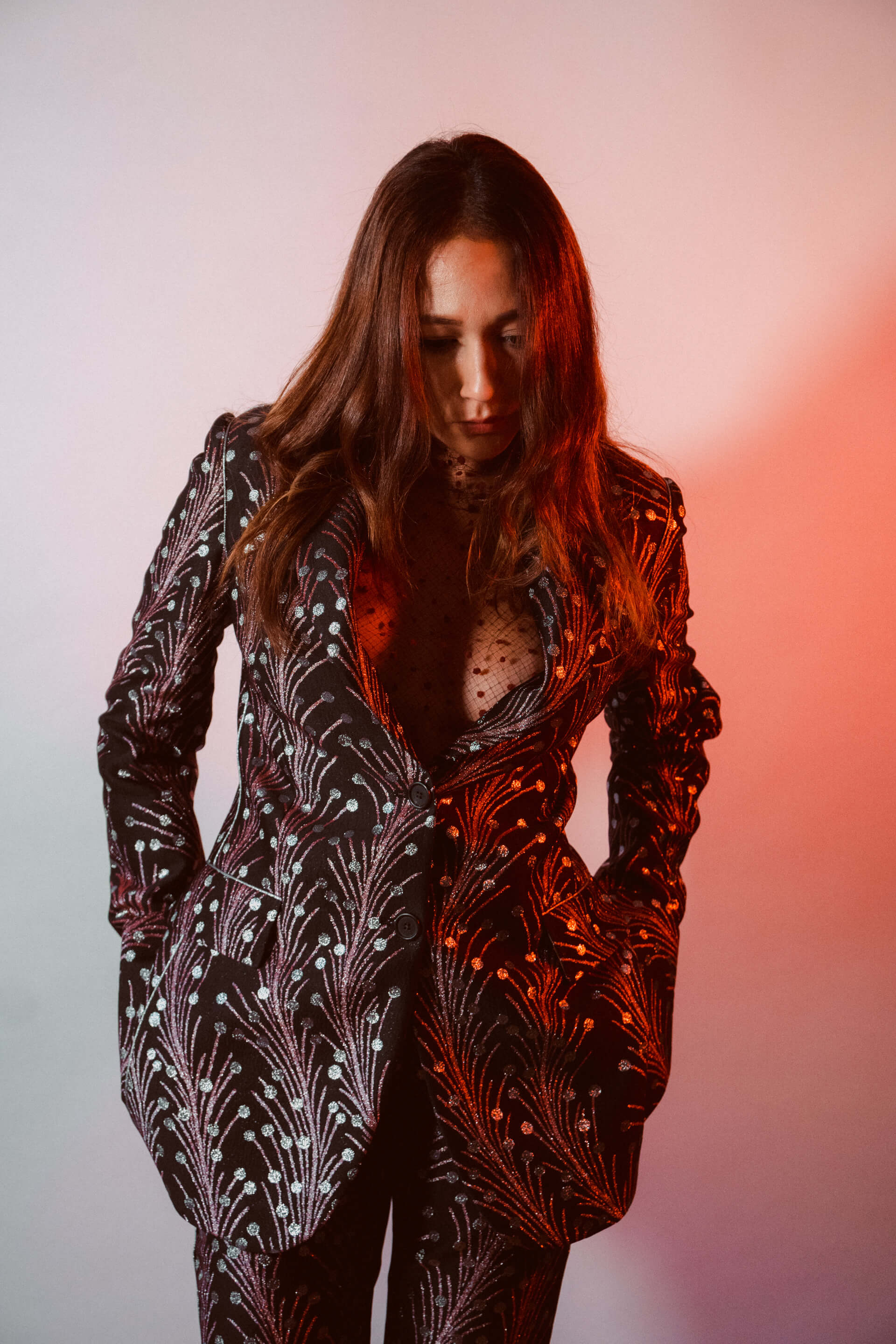
“The Mafia Kills Only in Summer,” “I am Mia” and “Anima”: music as a fil rouge, how important is music for your work as an actress?
Music is important in my life, so I would say yes! It’s also important for my job if we think of how a soundtrack can help us tell a story or a character.
Wagner, for example, was able to describe the “motif” of the characters, each character upon entering the scene had a recurring musical theme and this recurring theme could be associated not only toa character but also to a feeling, a place or an object.
An idea that has always fascinated me is that each of us can have a personal recurring musical theme. When I play a character, I turn to music or when I need to pull out emotions which otherwise would hardly come out, sometimes for me it is a kind of emotional memory or emotional discovery. Sometimes, I like to ask myself what could be the “recurring motif” of my character. Even only thinking about it from time to time adds something more to my work and helps me.
Your favorite soundtrack?
The soundtrack of “2001 A Space Odyssey.” The use of classical music to express the future is a brilliant concept, the music in this extraordinary film is the main character.
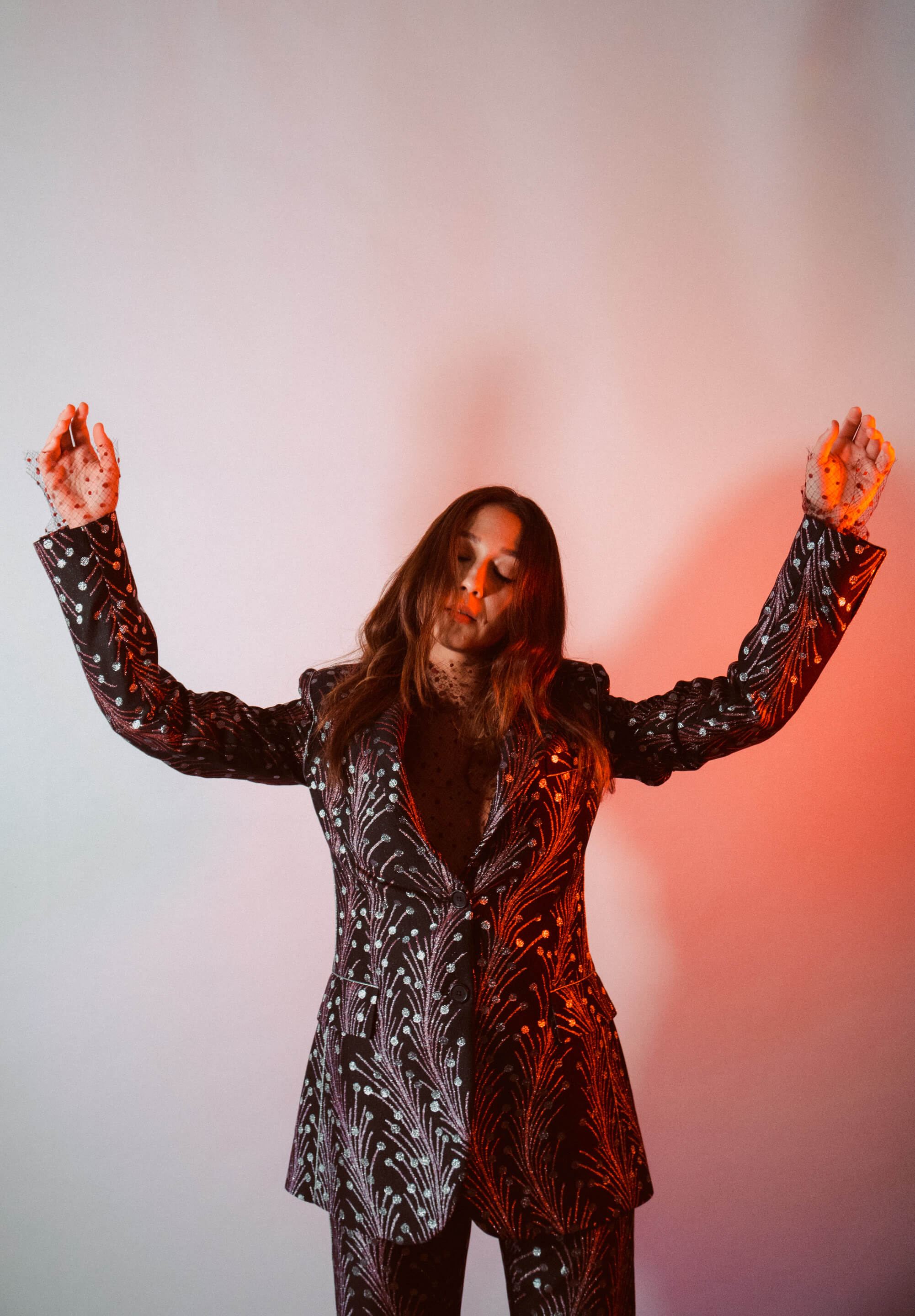
“…the idea that each of us can have a personal recurring musical theme.”
A song that describes what acting means to you?
There is a song sung by MEG, I think, in 2004, which is called “Senza Paura” (“Without fear“).
This song is basically a question: darkness, love, your journey (which means your life, its risks and dangers), death, how would it be if we could live them without being afraid? It is also an invitation to have courage because fear blocks you and prevents you from knowing and facing reality.
Often as an actress (especially in theater) I find myself immerged into very important topics, “extraordinary” I would say, like the ones to which the song refers. Given that the character’s life is often confused with mine, I realized that I should first of all take the responsibility to face my own fears and get to know them in order to be able to get as close as possible to those of my character.
Basically, I have to learn to ask questions about myself and not only about my character…
In a certain way, what I want to say is that, trying to know myself first of all helps me better understand the characters I play and that, for me, it is a similar path to the one of this song: a path in which there’s always something that scares me but that I have to find the courage to face, or just to ask the right questions. I also believe that, in my job, to make mistakes is more important than to be afraid.
And that, being this an empathic work, the questions must help us to understand the reasons, needs and fears of our characters. Otherwise the risk is that we rely on the idea, and for this reason we need to have the courage to take risks.
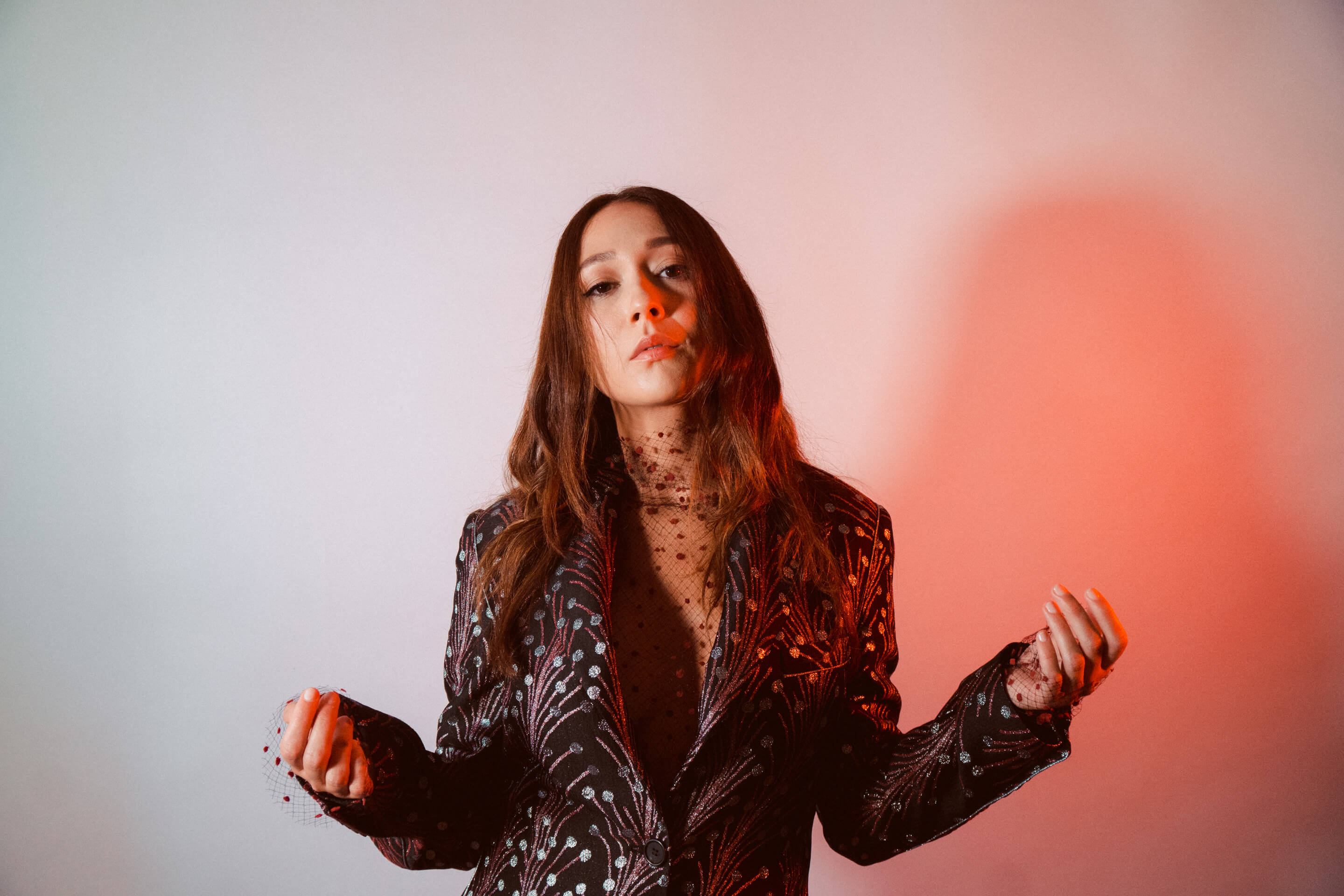
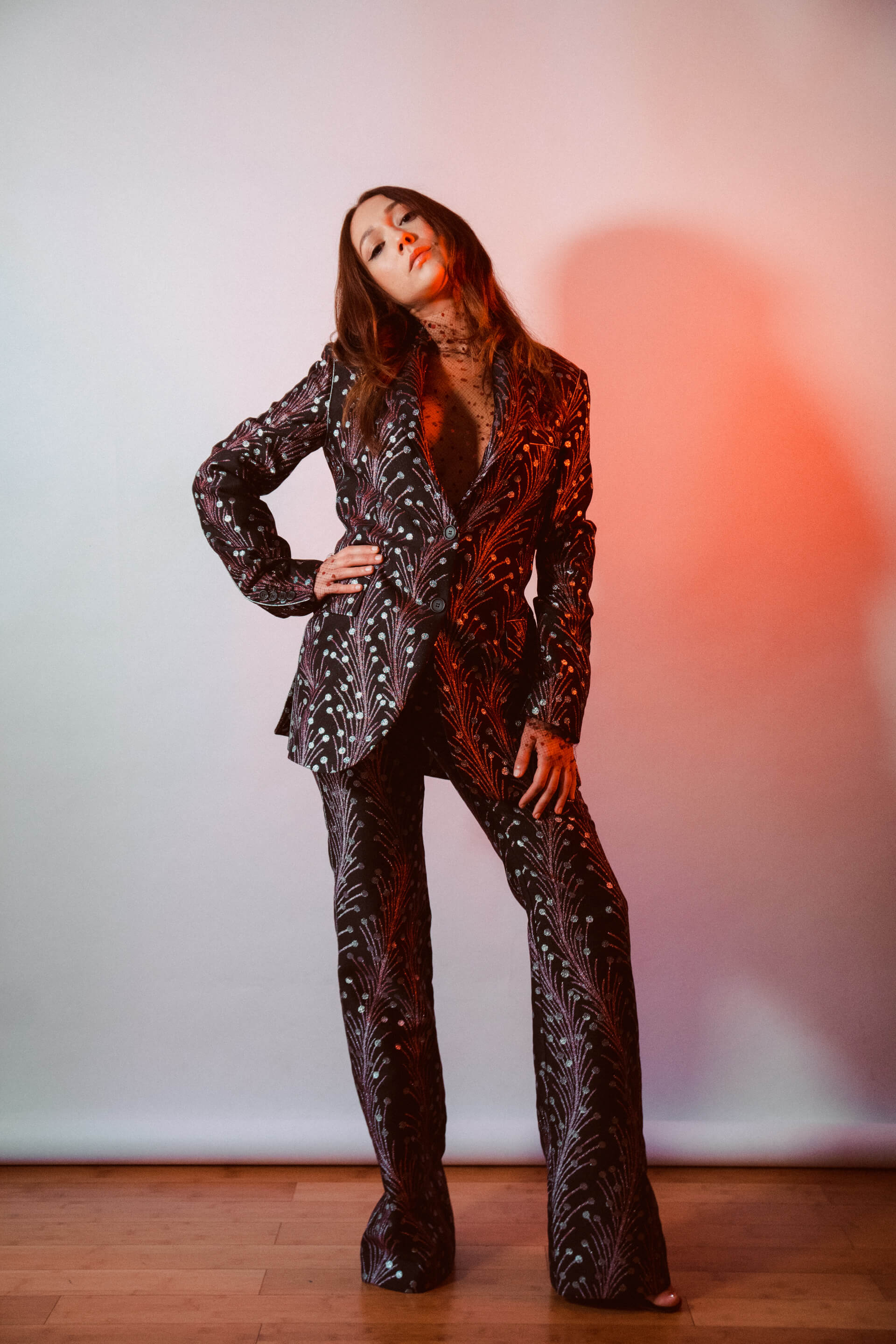
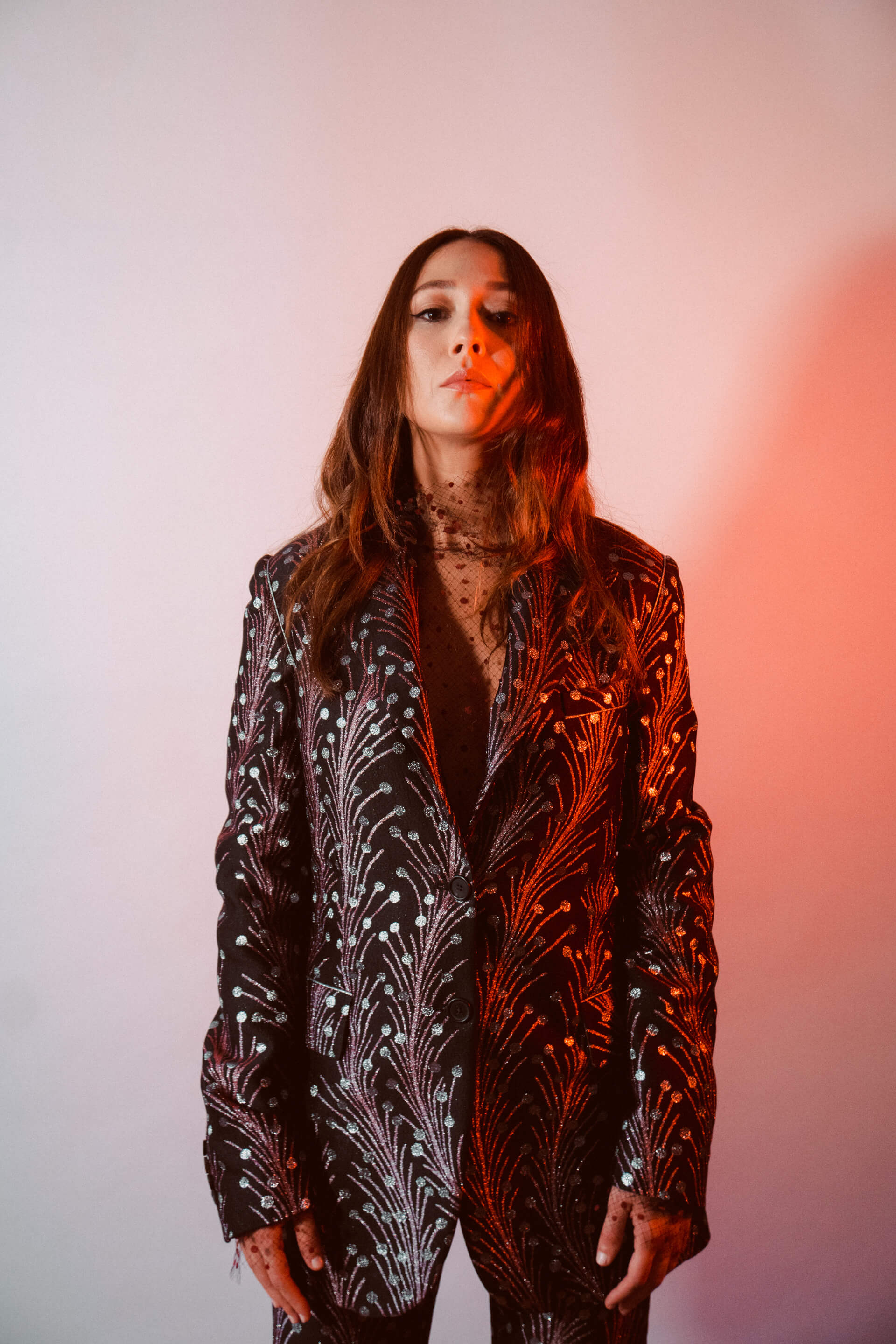
“In a certain way, what I want to say is that, trying to know myself first of all helps me better understand the characters I play and, for me, it is a similar path to the one of this song, a path in which there’s always something that scares me but that I have to find the courage to face or just to ask the right questions.”
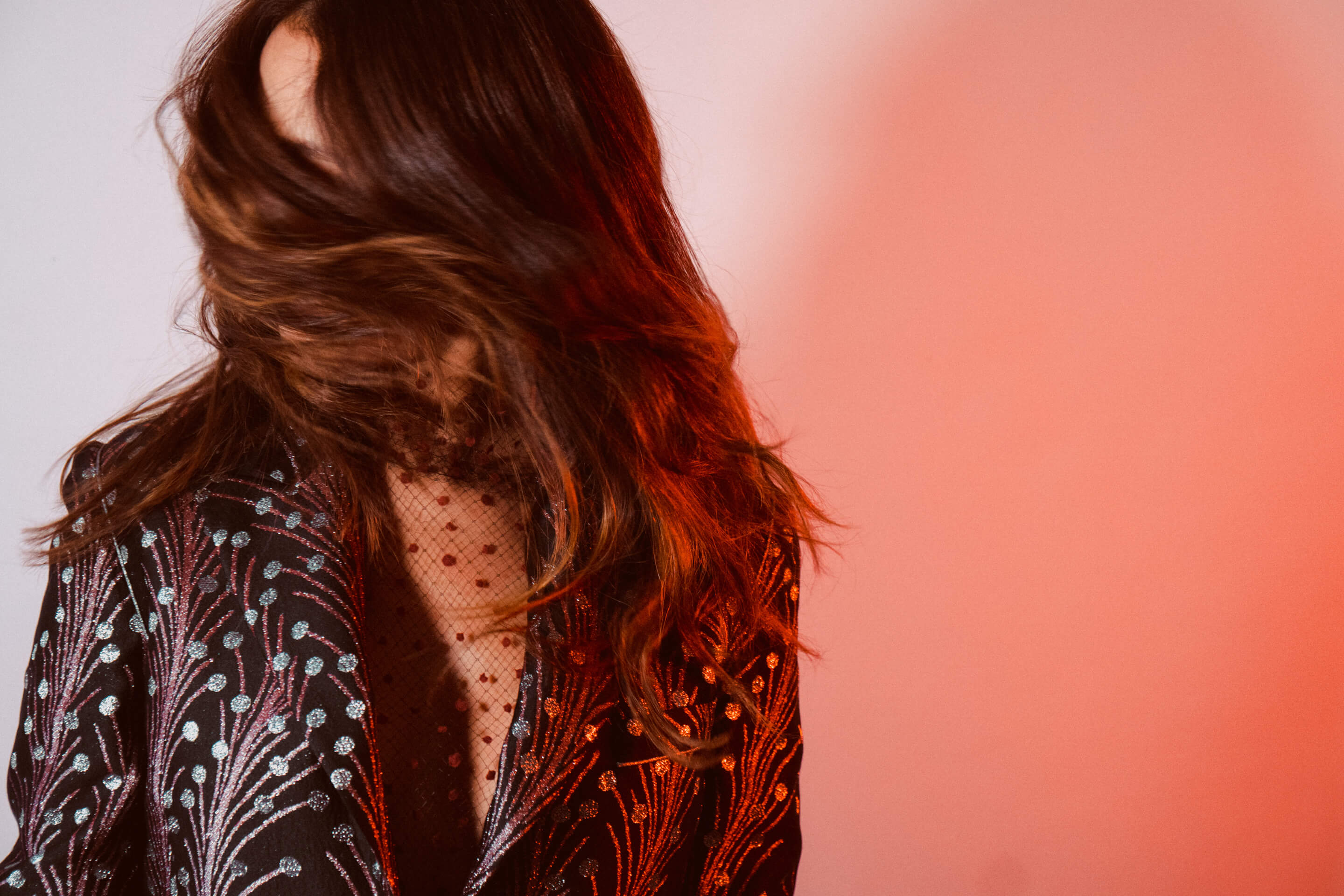
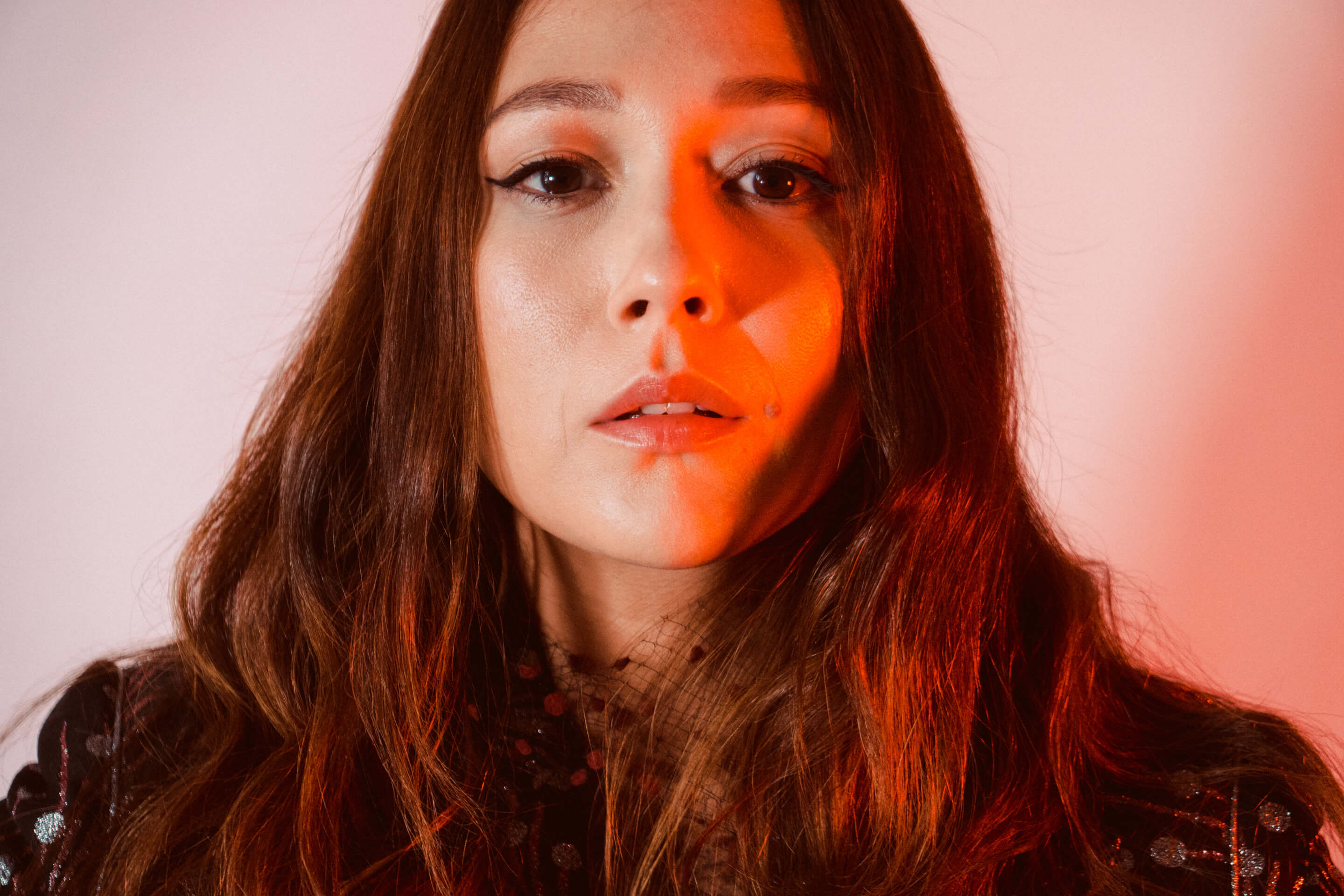
After “Io sono Mia”, “Ambrosoli – The price of courage”, which is another biographical project you would like to be part of?
Tina Modotti, I’ve studied her life for more than ten years, I am very prepared, I think I can say that I am ready to play her. If some producer is now reading this interview of mine and is maybe interested in me and in Tina Modotti, please contact me 🙂
We need to make a film about Tina Modotti’s life!
“Tina Modotti, I’ve studied her life for more than ten years…”
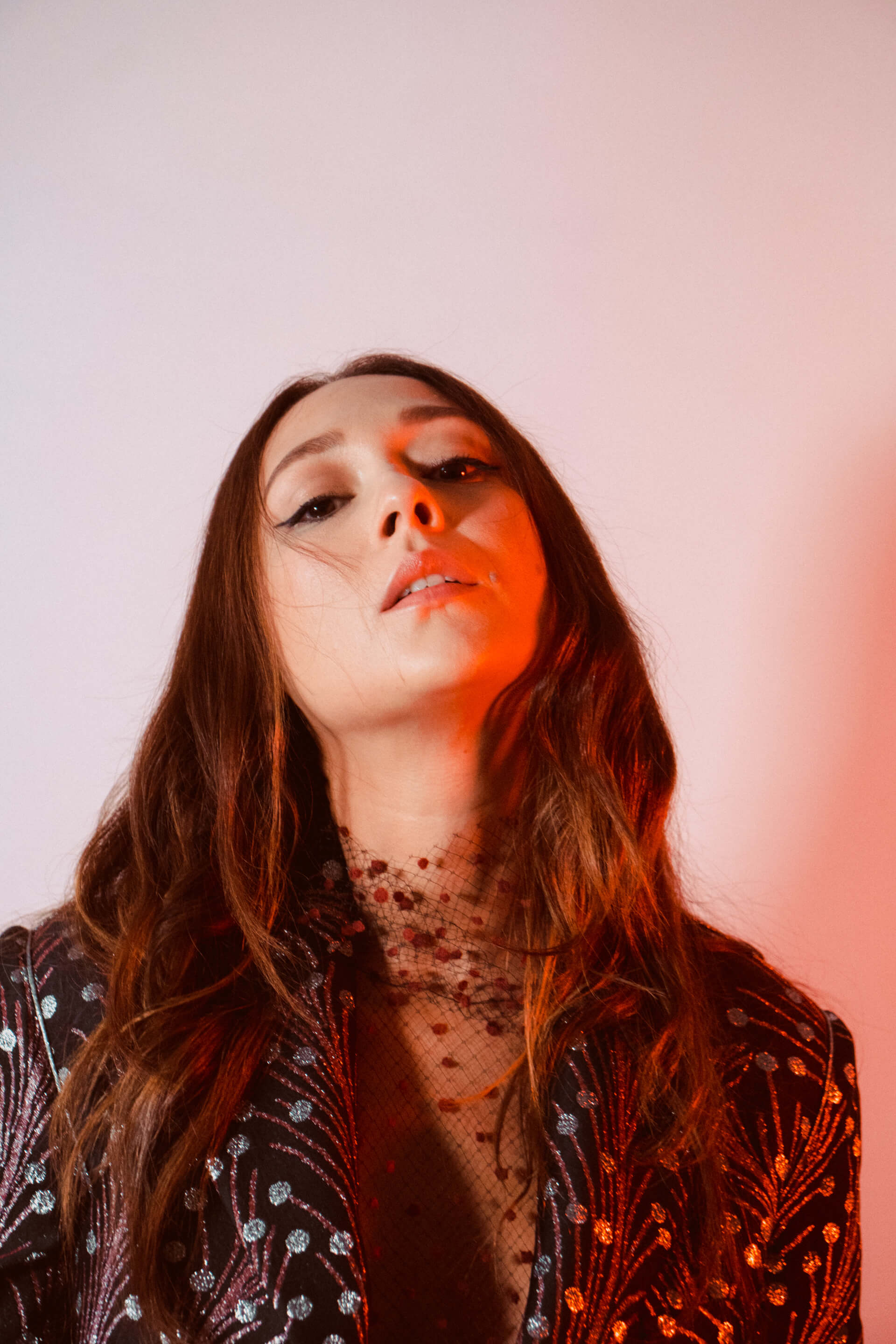
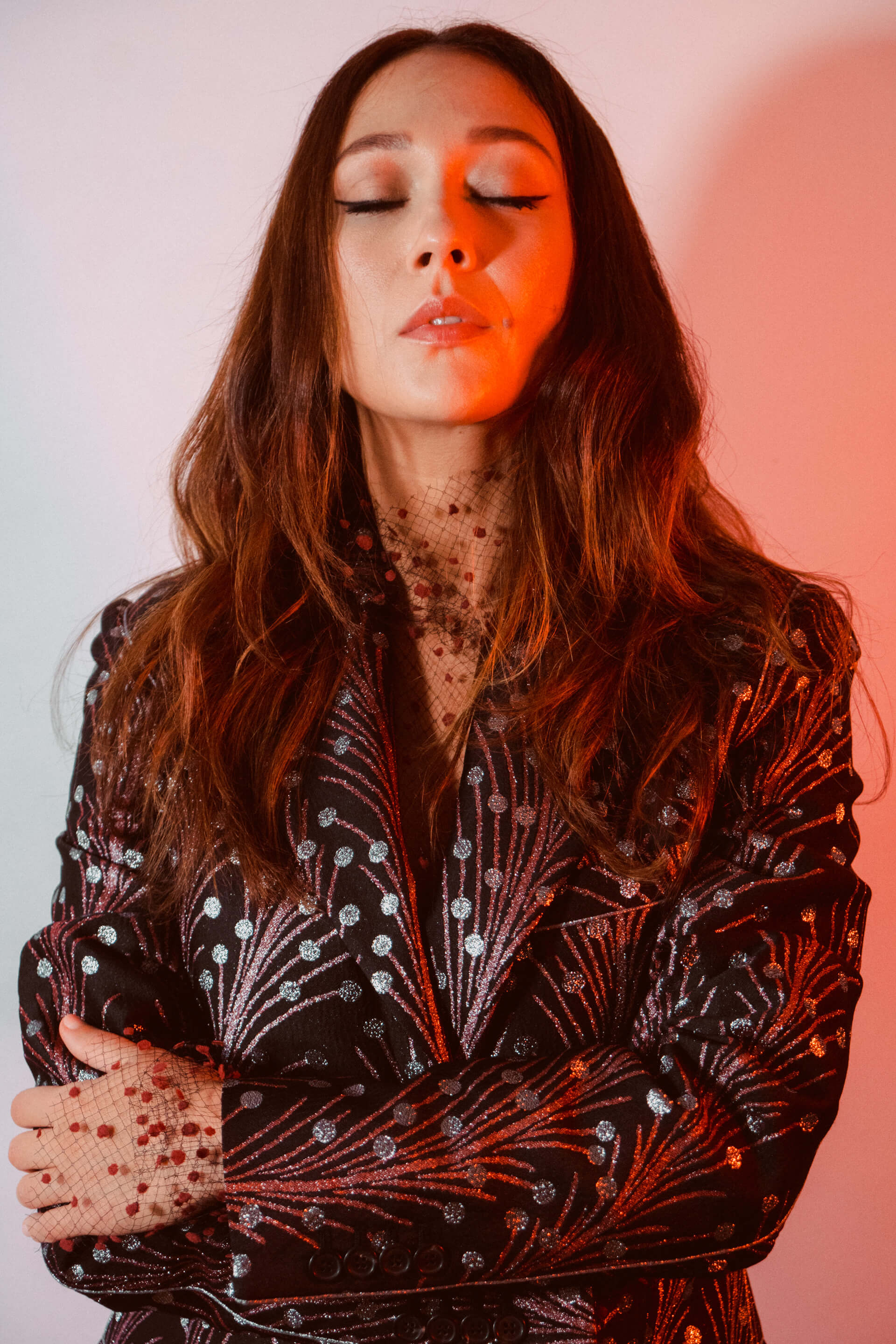
How does your approach to the character change when you play a character that really existed and one that didn’t?
I always try to be responsible for my choices when facing a character, especially when the character is not fictional. In that case the first thing I do is ask the production to provide me with all the repertoire material I can refer to, if there’s any. If it is a character who is still alive, I ask to meet them personally. Even if it’s often not possible, I still try.
For me it is a duty as well as a pleasure.
In the case of my recent character Annalori Ambrosoli, for example, I saw some of her interviews and read all the material I had asked the production to provide me with.
The same with Loredana Bertè, I always said I didn’t want to imitate her but to observe her like a good painter who doesn’t want to paint her perfect portrait, but her essence. Clearly, it’s not an easy path and you feel more responsible, but then you also have to let go of the unnecessary worries.
Cinema and theater. What do you bring on screen from your experiences on stage, and vice versa?
Theater has always helped me realize how much strength I have and how much ability I have to keep my character alive even for two consecutive hours. It has taught me to create a new life every night that I must also be able to forget the life that I created the previous evening, and this helped me also in cinema because I found myself strong and ready to repeat, preserving the life of that flow of thoughts and not the idea, to live the moment.
Technically and thanks to its discipline, theater has always helped me in cinema, too, it has made me versatile and made me aware of my body.
Cinema has taught me to learn nuances that I thought were lost in theater, and that can become very powerful instead.
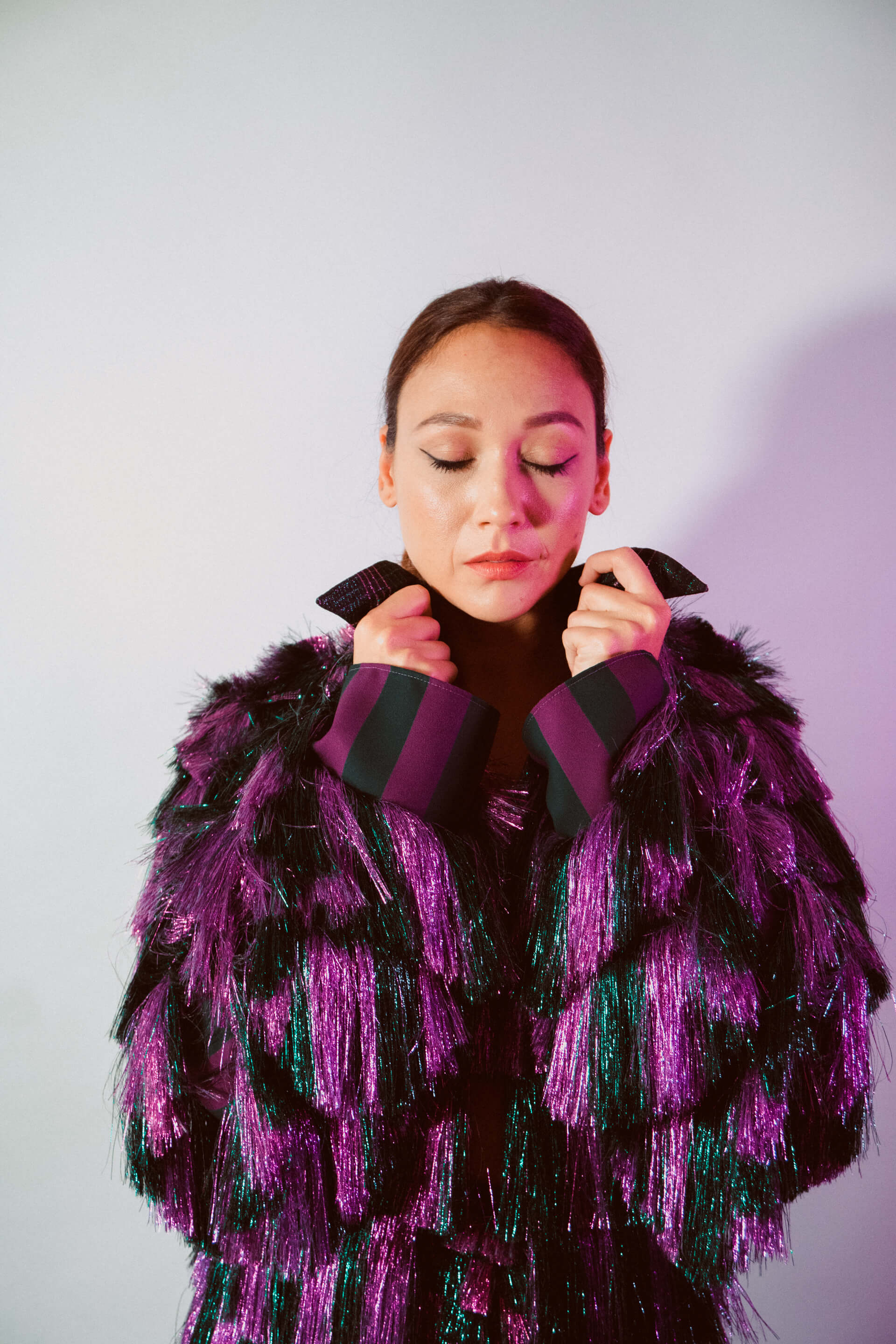
“…Thanks to its discipline, theater has always helped me in cinema, too, it has made me versatile and aware of my body.”
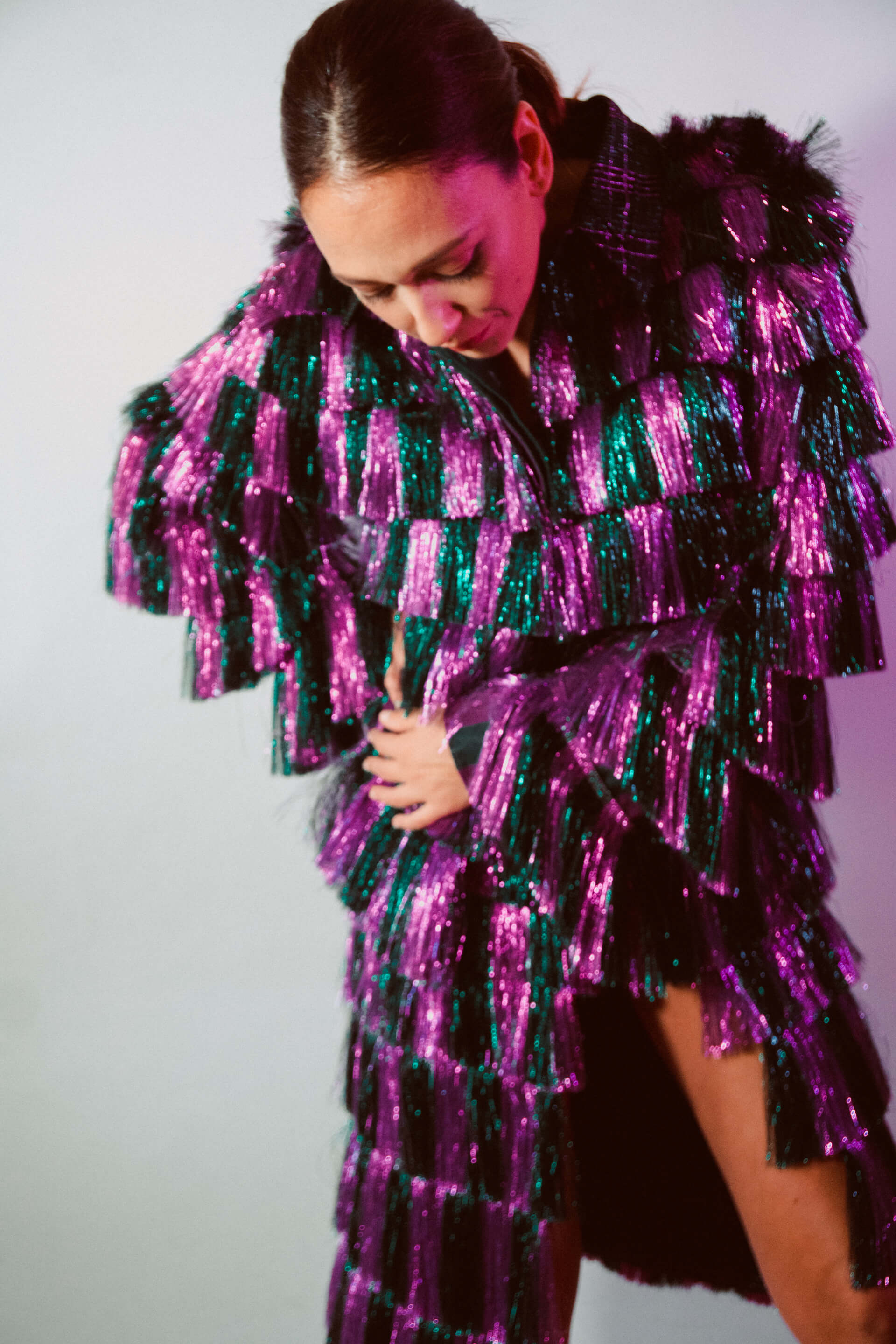
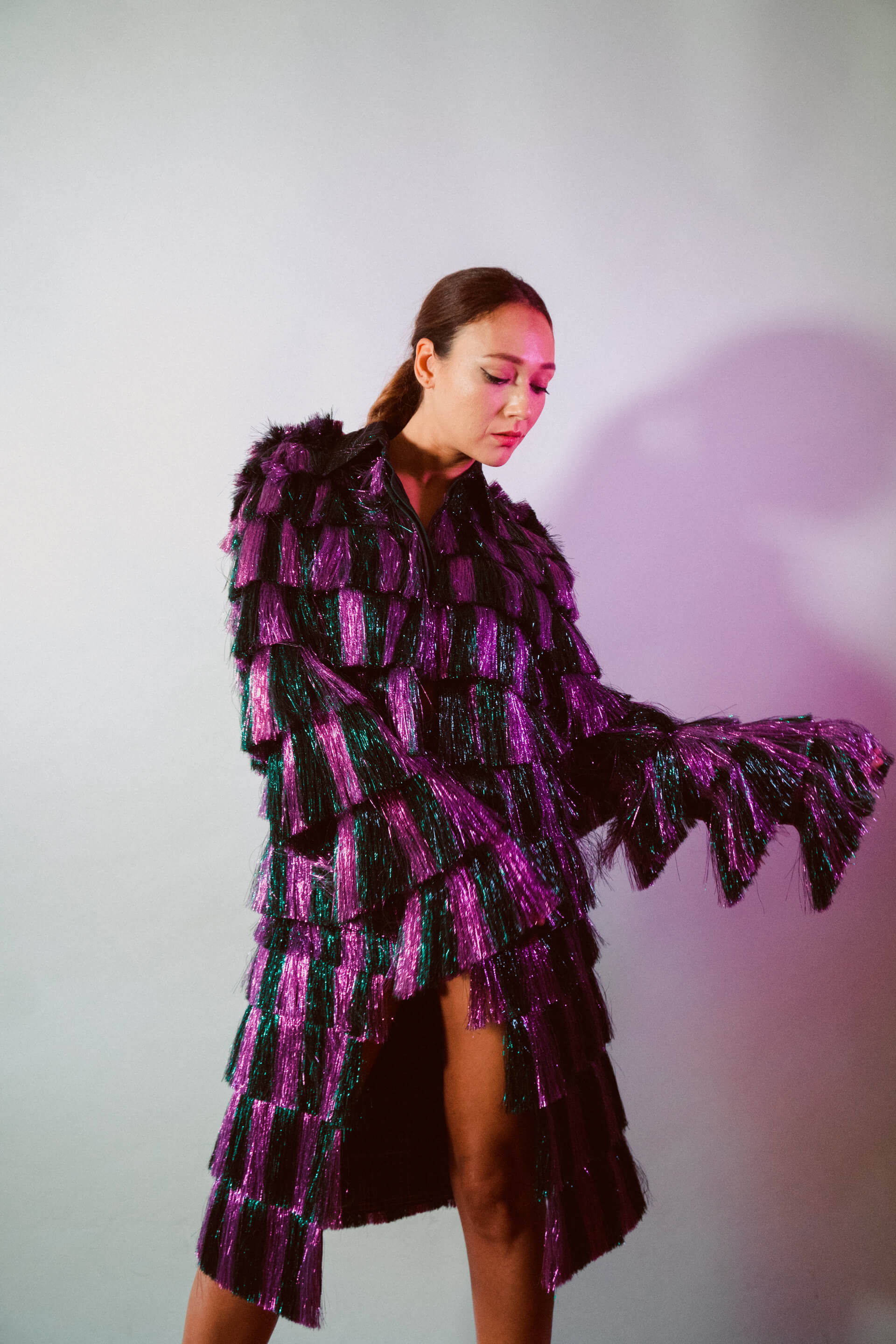
Paul Thomas Anderson is one of the most respected directors of his generation, how was working with him? And how did you build your character with him?
When you are lucky enough to work with a great director like Paul Thomas Anderson, you immediately feel scared but also protected and safe, I kept saying to myself “if I do something wrong he’s going to tell me,” and this already makes you feel in a perfect condition to work.
I was able to feel completely safe in his hands and forget about the roles that we were playing, him as a director and me as an actress, I felt that he trusted me and, since it was often necessary to make quick decisions on set, this helped me: ours was a silent relationship. I never wanted to ask him whether what I was doing was okay or not, because I knew there was a lot to think about and because I wanted to be a solution to his work and not a problem. I knew immediately that there was no room for doubts or fears, and that I had to trust myself and him. That’s how he sent me his secret message, at least that’s how I perceived it.
Having said that, I knew and felt that he would’ve stopped me if he thought it necessary. However, he never did it: I was going in the right direction and, in a sense, I felt that our secret trust agreement was stronger than any “suggestion.”
It was important to observe and follow the whole context, to feel the moment, to balance yourself in a “boat,” but perhaps in this case it would be better to say “underground,” full of things happening all at the same time.
In this job, the choreographies were very important so the the most difficult part was the physical preparation. The muscle memory helped me a lot during this time and we were able to create a wide probability of possible “physical actions.” We didn’t know which ones would work once on set but we tried to experiment thanks to the choreographer Damien Jale. A few moments were taken from an improvisation that Thom and I proposed to Paul and Damien and that they liked: this sequence appears by the end of the short movie, and takes place inside a train.
“I was going in the right direction and, in a sense, I felt that our secret trust agreement was stronger than any ‘suggestion’.”
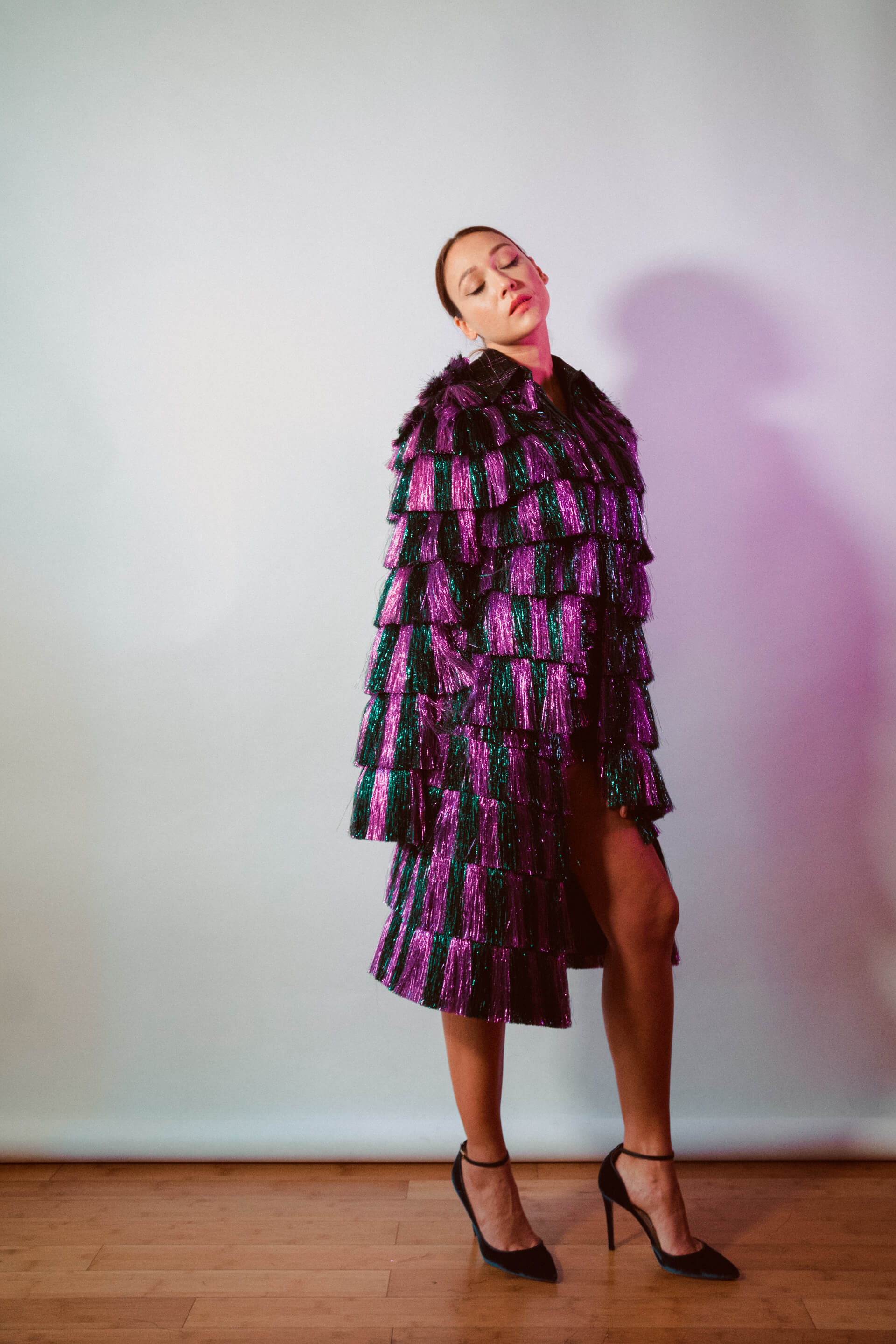
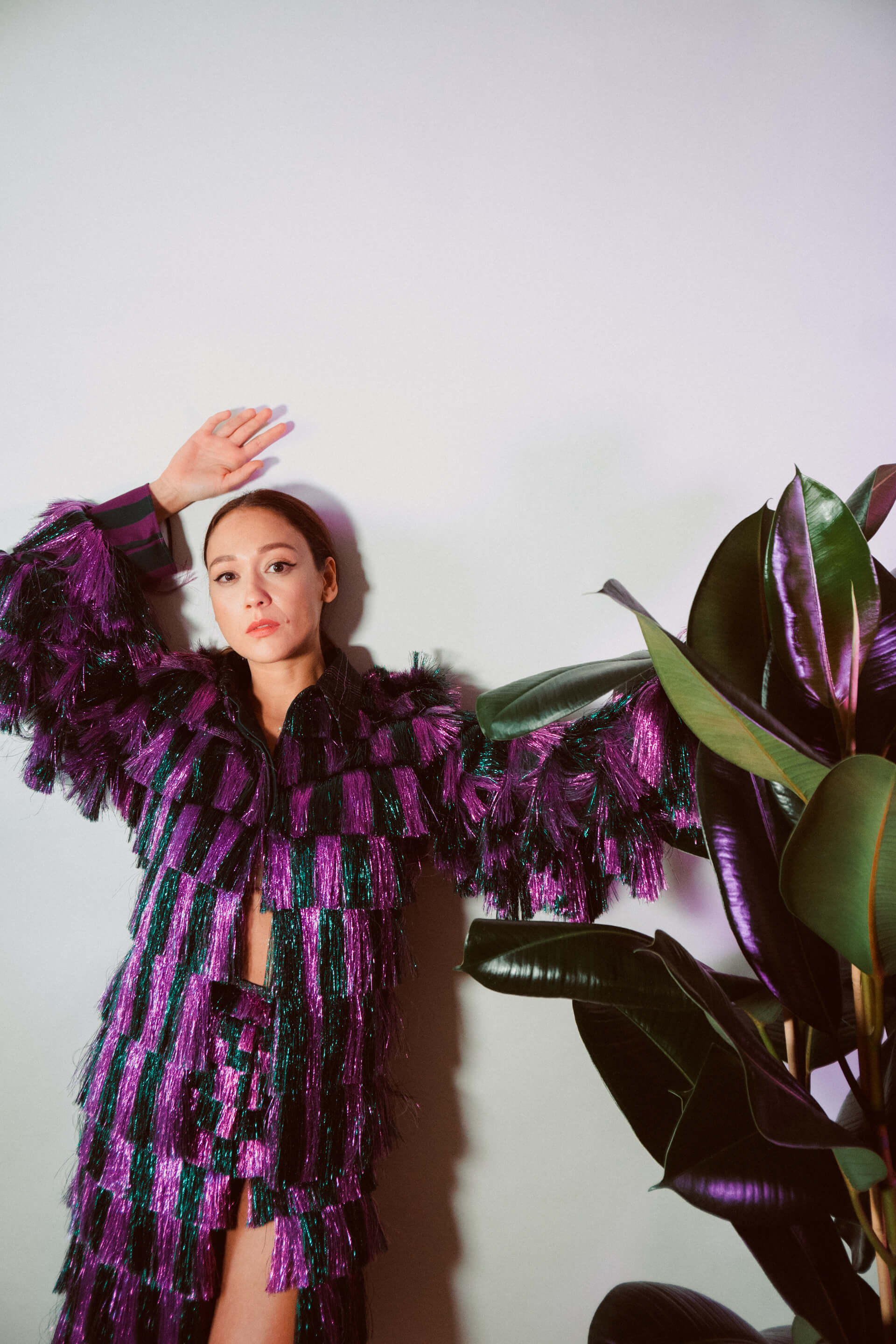
Writing or directing: are they in your future plans?
I just finished writing a film story that I really care about.
I think writing is already in my plans and I hope to carry on with it.
Your must-have on set.
My notebook, a big cup of coffee and the right playlist.
Epic Fail on the job?
That time I caused a “hole” in a scene. Yes, I was young and it was just a few seconds, but in theater it’s unforgivable, it’s a sign that you lack professionalism and reliability. During a show I was too late for some reason, I miscalculated the times and was obviously disconnected: anyway, I arrived late on the scene!
The delay was only a few seconds, but in theater it seems like a very long time, I could feel the wind pushing the hay bales around, these kind of things. Long story short, it seemed to me that hours had passed.
I felt terrible especially for my stage colleagues, I imagined them thinking of millions of possible solutions in a matter of seconds, just to fill that void I had created. I will never forget that feeling, but I must also admit that I learnt my lesson, because since then I have become a soldier!
What can you tell us about your future projects?
Not very much, because they have just arrived, I can only tell you that from October I will be back on set with a new project.
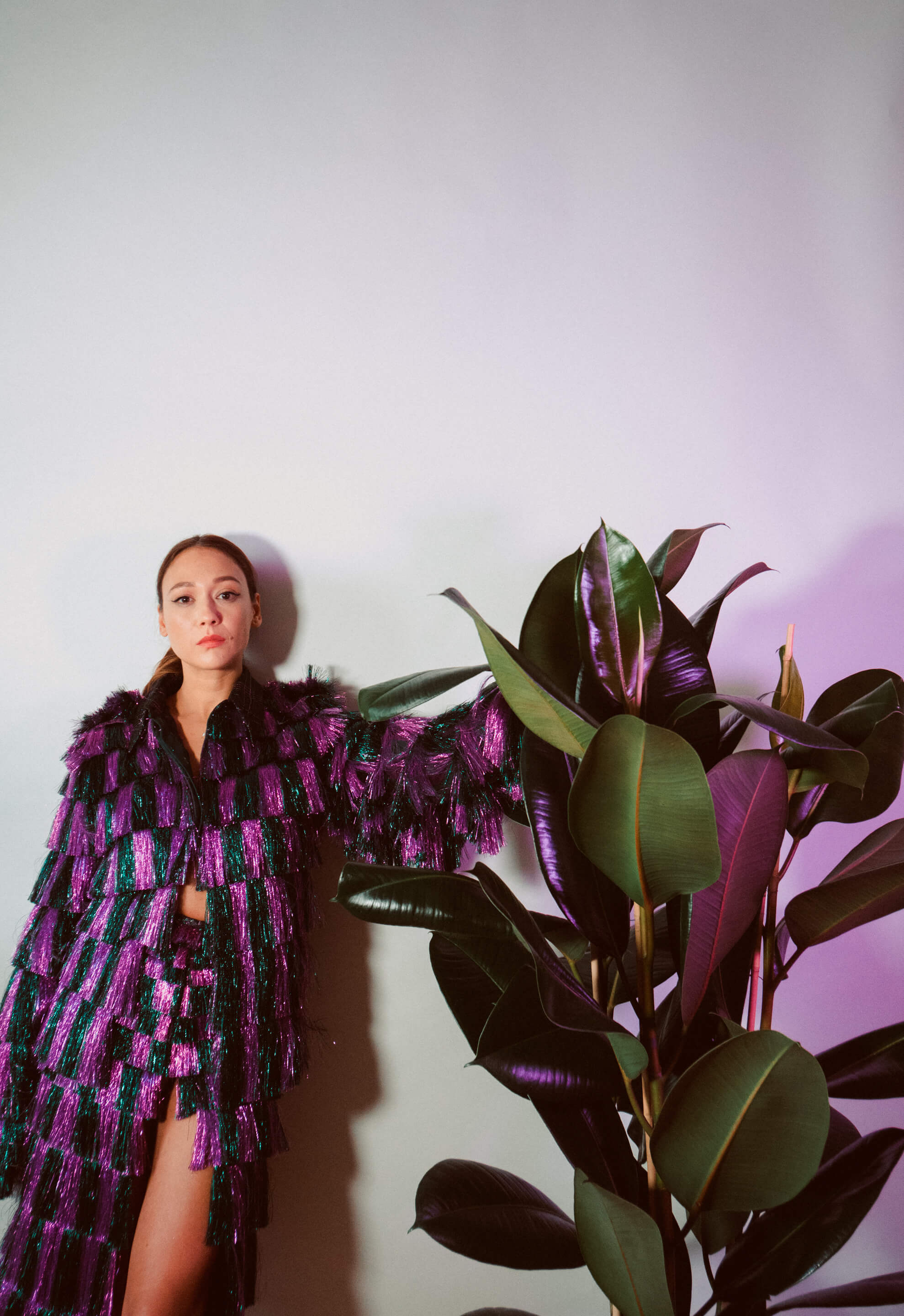
Photos by Johnny Carrano.
Styling by Sara Castelli Gattinara.
Total Looks by Marco De Vincenzo.
Shoes: Jimmy Choo.
Makeup and Hair by Claudia Raia.
Thanks to Factory4pr.
Press Office: Lorella Di Carlo.

